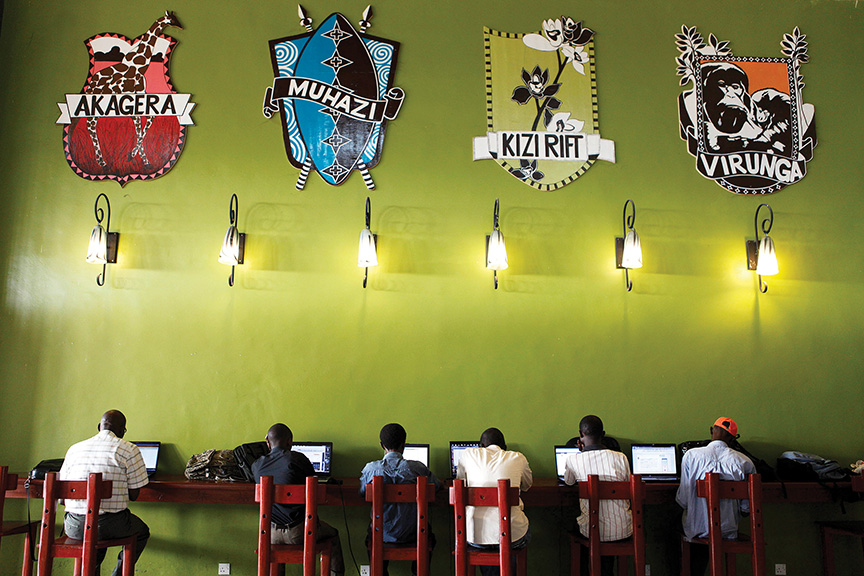AGENCE FRANCE-PRESSE
Rwanda is trying to reinvent itself as a regional high-tech hub by rolling out free citywide, and eventually nationwide, wireless connectivity.
“I came to use the Internet. Sometimes I download video and books,” said South Korean development worker Lee Il-mo, 31, a resident of Kigali for the past two years. “Before, I went to restaurants or coffee bars and I had to buy a drink, but here it’s a free area,” he said, sitting in Kigali City Tower — a zone slated as the city’s new tech hub and one of the first steps of the “Smart Kigali” project.
In September 2013, the Rwandan government announced it had started to cover the capital with wireless hot spots. This was the first step of a plan to provide Wi-Fi coverage to all schools and public buildings, markets, bus stations and hotels in the city and, eventually, to the entire country.
Jean Philibert Nsengimana, Rwanda’s minister in charge of information technology, said he wanted to see the plan “accelerate growth of the Internet sector” and attract more investors. “Connectivity is one of the most important draws for business in this age of digital economy,” he said, asserting that free Wi-Fi was merely a step in the direction of a much bigger infrastructure goal — that of fourth-generation, or 4G, access.
In June 2013, the Rwandan government contracted with South Korea’s KT Corp. to build a 4G network to deliver to 95 percent of the country, up from the estimated 10 percent who have 3G access. “Broadband access,” said Nsengimana, “has to be considered as an essential, just like water and electricity.”
Rwanda is ranked as one of the least corrupt countries in Africa, and the World Bank’s ease of doing business index for 2013 ranked Rwanda 52nd out of 185 countries, the third best in Sub-Saharan Africa.
The government now wants to push economic growth to 11.5 percent for each of the next five years, drive poverty from 45 percent to below the 30 percent mark, and reach middle-income status by 2020.

